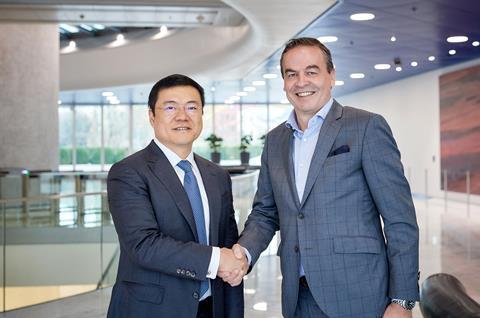
As part of its electromobility expansion, BMW has signed a 540m euro ($598m) supply contract with Ganfeng Lithium of Jiangxi province, China. The deal will guarantee 100% of the OEM’s lithium hydroxide needs for fifth-generation battery cells in its high-voltage batteries, according to the carmaker.
“Alongside cobalt, lithium is one of the key raw materials for electromobility. With the signing of this contract, we are securing our lithium needs for battery cells,” said Andreas Wendt, BMW management board member responsible for the purchasing and supplier network.
“We aim to have 25 electrified models in our line-up by 2023 – and more than half will be fully electric. Our need for raw materials will continue to grow accordingly. By 2025, for lithium alone, we expect to need about seven times the amount we do today,” he added.
The five-year contract through to 2024 is just one part of the jigsaw for BMW when it comes to powering its planned range of electric vehicles (EVs).
The OEM has increased its order volume for battery cells from China’s CATL to 7.3 billion euros and has signed a long-term contract worth 2.9 billion euros with Samsung SDI of South Korea for its fifth-generation electric drive trains.
“In this way, we are securing our long-term battery cell needs,” added Wendt. “Every cell generation is awarded in global competition to the leading manufacturer from both a technology and a business perspective. This ensures we always have access to the best possible cell technology.”
In-house battery production takes place in BMW car assembly plants at Dingolfing (Germany), Spartanburg (US) and, through its BBA joint venture, at Shenyang (China). The group has also localised battery production in Thailand, working in partnership with German electronics company Dräxlmaier.
BMW has also opened a competence centre in Munich to advance battery cell technology and introduce it into production processes. “Whether we set up our own standard production of cells at a later date will largely depend on how the supplier market develops,” Wendt said.


























![Global[1]](https://d3n5uof8vony13.cloudfront.net/Pictures/web/a/d/s/global1_726550.svgz)













No comments yet